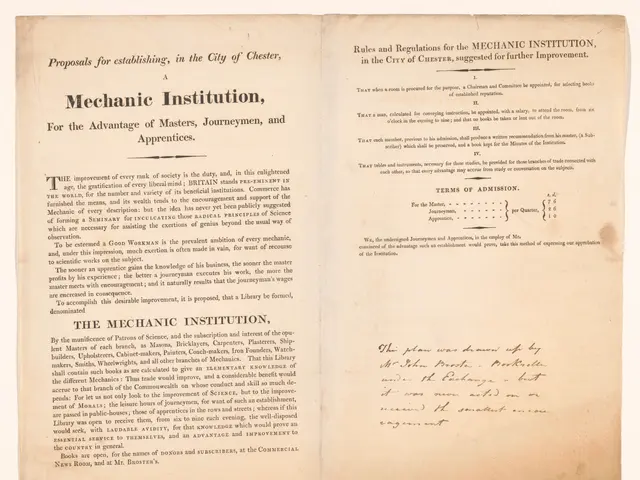The Rail Empire: Fuelling the Modern World's Economic Growth
Impact of Rail Supply Chain on Diverse Economic Sectors
Welcome to the age of transportation, where goods are moved from one end of the globe to another via trucks, planes, and our beloved focus - railways. Each mode of transport has its unique advantages, from handling small quantities to large cargo loads. Railways, in particular, have emerged as the reliable backbone of global logistics. Let's delve into the world of railways and explore its transformative impact on various industries.
The Railways: The Unseen Heroes in Global Logistics
Railroads hold the keys to an extensive network of rails, trains, and support infrastructure. At the helm resides the logistics or control center, managing the rail chain supply and system. With a massive manpower deployment and reliance on the intricate rail network, railways ensure the timely and safe delivery of goods.
The Railways: Unsung Allies of the Major Industries
From agriculture to retail, every significant industry employs the railways as an indispensable ally. Here are the 7 key industries that benefit immensely from modern-day rail transportation.
1. Farm to Table: Agriculture and Food Production
Agriculture heavily depends on the efficient and cost-effective rail transportation of bulky agricultural commodities such as grains, livestock feed, and fertilizers. Railroads aid in moving these goods from rural production areas to urban markets and ports for export.
2. Gears of Industry: Manufacturing and Heavy Industry
For heavy industries like automotive, steel, coal, machinery, and more, railways serve as the lifeblood. They transport essential raw materials like coal, iron ore, and steel, which are expensive to move via road, and deliver parts and components just in time. Additionally, after production, railways ensure the timely distribution of finished products to warehouses, retailers, or customers.
3. Energy Boom: Energy Sector
The energy sector, in particular, crude oil, gas, and renewable energy, relies on railways for various critical operations. Railroads transport crude oil from extraction sites to refineries, especially in regions devoid of pipeline infrastructure. Moreover, they deliver coal and other fuels efficiently, and enable the transportation of bulky renewable energy components such as solar panels and wind turbine blades.
4. Retail Revolution: Retail and Consumer Goods
Retailers and consumer goods companies benefit significantly from railways in terms of transporting large volumes of consumer goods efficiently. Railways support the supply chains of big-box retailers and e-commerce giants, while intermodal transport solutions provide a flexible bridge between long-haul rail and final-mile delivery.
5. Bulk Delivery: Chemical and Pharmaceutical Industries
The chemical and pharmaceutical sectors require top-notch transport solutions that railways deliver. Railways ensure the safe transport of hazardous materials and bulk chemicals. Additionally, for temperature-sensitive pharmaceuticals, controlled-environment rail delivery schedules are maintained.
6. Building Empires: Construction and Infrastructure
Construction companies rely on railways for the delivery of materials such as cement, steel, lumber, and heavy machinery. Railroads enable the swift transport of these essential building blocks, supporting the creation of new infrastructure.
7. A Greener Tomorrow: Environmental and Sustainability Impact
With the increased focus on sustainability, railways contribute significantly to the goal of a greener planet. Electric trains dominate the global transportation landscape, reducing greenhouse gas emissions and lowering overall energy consumption. Moreover, by moving large freight volumes, railways help reduce the number of trucks and traffic congestion on the roads and contribute to more efficient land use.
Conclusion
In conclusion, railways have evolved into an integral part of modern transportation and logistics systems. They support the growth of various industries, from agriculture to heavy industries, retail to energy, and construction to renewables. The railways ensure the smooth flow of essential goods across the globe, contributing to economic growth and societal well-being.
The railways are essential for many industries, including finance, as they reduce freight costs, making transportation more affordable for businesses.
The energy sector's transition toward renewables is aided by efficient rail transportation, which enables the distribution of solar panels and wind turbine components.
In the aerospace industry, railways facilitate the transport of various materials required for aircraft production.
Efficient logistics in the retail sector, facilitated by the railways, contribute to the growth of the broader retail and consumer goods market, including the burgeoning fintech industry.
Finally, railways' impact extends beyond traditional industries, contributing to economic growth and societal well-being while promoting sustainability through reduced emissions and improved land use.








